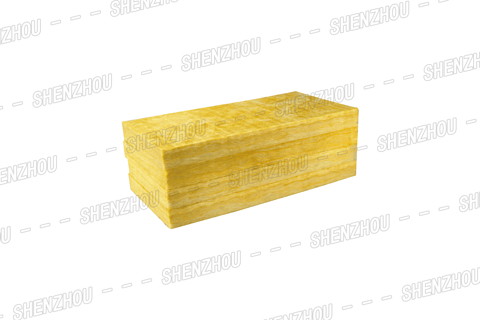
Is it better to use glass wool or rock wool board for internal wall insulation?
6/21/20245 min read

Glass wool and rock wool board are common options for selecting insulation materials for inner walls. They each have different characteristics and advantages, suitable for different occasions and needs. This article will compare and analyze these two materials from multiple perspectives, so that readers can make wise choices based on their actual situations.
Categories
Popular
Applications of Glass Wool Board:
Interior Wall Compartments:
Enhances the functionality and aesthetics of interior spaces.
Ceiling Systems:
Provides effective insulation for ceilings, contributing to energy efficiency.
Insulation of Iron Sheet Air Ducts or Bellows:
Ideal for insulating ductwork, ensuring thermal efficiency.
Sound Absorption and Noise Reduction:
Reduces noise levels in machine rooms, creating a quieter working environment.
Exterior Wall Insulation:
Offers insulation for residential building exteriors, contributing to energy savings.
Glass Wool Insulation





Firstly, let's take a look at glass wool. Glass wool is an artificial inorganic fiber made mainly from natural ores such as pyroxene, quartz sand, limestone, etc. It is processed by high-temperature melting, fibrosis, and adding binders. It has advantages such as good molding, fire resistance and flame retardancy, low thermal conductivity, thermal insulation, and good sound absorption and noise reduction performance. The fibers of glass wool are slender, flexible, and therefore have excellent insulation effects. In addition, the sound absorption and noise reduction performance of glass wool is also excellent, which can effectively absorb indoor noise and improve the comfort of the living environment.
However, glass wool also has some shortcomings. Firstly, although the density of glass wool is relatively small, its structure is relatively loose, so there may be certain safety hazards during use. Secondly, the water resistance of glass wool is relatively poor, and its insulation performance may be affected when it is heavily soaked in water. In addition, the relatively high price of glass wool also limits its application in some projects.
Next, let's take a look at the rock wool board. Rock wool board is an inorganic fiber board made mainly from basalt and processed by high-temperature melting. It has the characteristics of light weight, low thermal conductivity, heat absorption, and non flammability. Rock wool board has a wide range of applications in the field of external wall insulation, and its fire resistance performance is particularly outstanding, reaching the highest fire resistance level of A1. In addition, the density of rock wool board is relatively high, so its sound insulation effect is also relatively good. In terms of installation, rock wool boards are relatively easy to install due to their hard texture.
However, rock wool boards also have some drawbacks. Firstly, its high production cost leads to relatively high prices. Secondly, rock wool boards are not biodegradable and cause certain pressure on the environment. In addition, although rock wool board has a certain degree of water resistance, due to its high density and relatively high water absorption rate, its insulation performance may also be affected when it is severely soaked in water.
So, should we choose glass wool or rock wool board for internal wall insulation? This mainly depends on the specific project requirements and budget situation. If the project requires high fire performance and has sufficient budget, then rock wool board may be a better choice. The high fire resistance and excellent sound insulation performance of rock wool board give it advantages in certain specific occasions. However, if the project is price sensitive and has certain requirements for insulation and sound absorption and noise reduction performance, then glass wool may be a more suitable choice. The insulation effect and sound absorption and noise reduction performance of glass wool are both excellent, and the price is relatively low.
In summary, both glass wool and rock wool boards have their own advantages and applicable scenarios in the field of interior wall insulation. When choosing, we need to comprehensively consider the actual needs, budget situation, and material performance characteristics of the project. At the same time, we also need to pay attention to the environmental performance of materials and the impact of production processes on the environment, in order to choose insulation materials that are more in line with sustainable development requirements.
Finally, it should be emphasized that regardless of which insulation material is chosen, construction must be carried out in accordance with relevant specifications to ensure insulation effectiveness and safety performance. During the construction process, attention should also be paid to the storage and transportation of materials to avoid moisture or damage. Only in this way can we fully leverage the performance advantages of insulation materials and provide safer, more comfortable, and energy-saving insulation solutions for buildings.

Why Choose SHENZHOU Glass Wool Board?
SHENZHOU® Glass Wool Board not only meets the essential requirements of thermal insulation but also excels in sound absorption and noise reduction. Its adaptability to various settings, coupled with the convenience of construction and installation, positions it as a leading choice for architects, builders, and contractors.
In conclusion, the broad application prospects of SHENZHOU® Glass Wool Board make it a comprehensive solution for enhancing comfort, energy efficiency, and acoustic performance across diverse projects. Choose SHENZHOU® for insulation solutions that go beyond expectations.










About Us
Click the button below to get more information about us
Newsletter
Click to subscribe for more information
Follow Us
Contact Us
Address
Dacheng town, Langfang City, Hebei province, China
Phone
+86 185 03165 626


